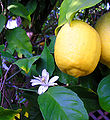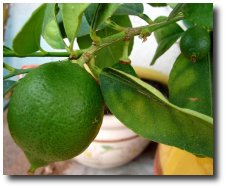LEMON BENEFITS THERAPEUTIC LEMON Properties
Lemon Benefits
Lemon benefits What are the benefits and properties of the lemon and does our body react to it?
Lemon: Refreshing, antiseptic, astringent, toning, healing: lemon can be used for several purposes.
Fortunately, lemons are on sale all year. Here are some tips to enjoy every last drop.

Skin Care
- It helps you get a smoother skin. Do you have rough elbows, knees or heels? Cut a lemon in half and gently rub the lemon on the rough parts for a few minutes.
- A piece of lemon applied to insect bites soothes the pain and itching within minutes.
- For those with oily skin, or if you want to get rid of blackheads quickly, squeeze a lemon on a cotton then apply it on the affected areas. With it property as an astringent, lemon also helps to tighten pores.
Dental care
A recipe from Grandma: For whiter teeth, brush them twice a week with a mixture of neat lemon juice, lime and grapefruit juice. This solution also helps reduce tartar. However, you should avoid sucking directly from a lemon slice because of its concentration in citric acid harmful to dental enamel.
Hair
To give your hair a shiny aspect, rinse with a little lemon juice after shampooing.
Migraine
Next time you have a headache, try lemon juice compresses or apply a few slices on your temples.
Feet
Aching feet? To relieve pain, rub the arch with lemon juice.
Health
Its reputation being that it has antiseptic properties, it is used in many treatments against sore throat and can also lead to cures for hands. It is now being used more and more in cosmetics. It is used to lighten and even skin tone. It eliminates 30% of glucose in the blood, effective for diabetes.
Its juice helps to prevent mucus: lemon juice diluted in warm water avoids having a hoarse voice.
A sugar soaked in lemon juice is the most effective remedy against hiccups. Although the way it works is unknown, the effect is immediate, guaranteed, easily verified and safe.
The lemon in the kitchen
Natural antiseptic, lemon is known for its high content of vitamin C. It is a very natural way to enhance the flavor of food and also flavor soups, sauces, vegetables, desserts and sorbets. It replaces the vinegar in many salad dressings. Finally, we use it to marinate and tenderize white meat, poultry and fish.
Buying and storing
- Always buy well round lemons, they are juicier than the oval-shaped ones. Choose the brightest yellow lemons, they contain more vitamins. Whole lemons can be stored in your refrigerator tray for about two weeks.
- Wrap the lemons you opened in plastic and eat them as soon as possible. The lemon should be at room temperature for it to give its maximum juice. Roll it on a board or in your hands for a few minutes before squeezing it. Also, it will give more juice if you first heat it in the microwave for 30 seconds.
Use the zest
Roughly grated, the zests are used in some soups and exotic dishes, desserts and delicate perfumes. It is also used in curries and in some classic stews. To grate the zest, use a fine grater, rub gently to avoid scratching the white skin that give a bitter taste.
A good tip
If you only need a few drops, drill a small hole in the fruit. Then, you can reseal it with a toothpick or wrap the lemon in plastic.

A lemon tree in the house
If you want to grow a lemon tree at home, here’s how to do it from lemons you bought: keep the seeds moist for 24 h. Fill a pot of 10-15 cm and plant the seeds 2 cm deep. Keep the seeds moist during their germination. They will take about a month to germinate. They will grow well under fluorescent light or on the edge of a sunny window. Unfortunately, it won’t produce anything other than leaves. If you want to see a lemon tree blossom, you’ll have to buy it.
Plant care
Prepare a drained, rich, neutral, without excess water mixture. During growth, use a special citrus fertilizer, watering one time out of two; trim slightly in March and watch out for spiders, mealybugs and aphids.
———————————————————————————————
In other applications
- Lemon juice can be very useful to clean aluminum objects, and it is in fact in the composition of the mixture that is sold to clean the copper utensils.
- It also appears that lemon juice has spermicide virtues because of its high acidity (pH lower than in the vagina). Studies are made to check if the lemon juice has an impact on AIDS.
- Lemon juice can also be used as invisible ink. Just use its juice as ink, and then heat the sheet over a candle (not too close) to see the message.
|
Raw skinless lemon
(Nutrition per 100 g) |
|||
| Water: 88.98 g | total ash: 0.30 g | fiber: 2.8 g | energy: 29 kcal |
| protein: 1.10 g | fat: 0.30 g | Carbohydrates: 9.32 g | Simple sugars: 2.50 g |
| Micronutrients | |||
| Calcium: 26 mg | Iron: 0.60 mg | Magnesium: 8 mg | Phosphorus: 16 mg |
| Potassium: 138 mg | Copper: 0.037 mg | Sodium: 2 mg | Zinc: 0.06 mg |
| Vitamins | |||
| Vitamin C: 53.0 mg | Vitamin B1: 0,040 mg | Vitamin B2: 0,020 mg | Vitamin B3: 0.100 mg |
| Vitamin B5: 0.190 mg | Vitamin B6: 0.080 mg | Vitamin B9: 0 mcg | Vitamin B12: 0.00 mcg |
| Vitamin A: 22 IU | Retinol: 0 mcg | Vitamin E: 0.15 mg | Vitamin K: 0.0 mcg |
| fat acids | |||
| Saturated: 0.039 g | monounsaturated: 0.011 g | polyunsaturated: 0.089 g | Cholesterol: 0 mg |
Risks
- Lemon is also photosensitive. When you apply lemon juice on the skin, marks can appear after exposure to sunlight. There are two reactions: phototoxicity and photoallergy.
- Lemon can also cause some burns to mucous membranes if its juice or essential oil is absorbed in too large quantities. The mucous membranes more prone to burned are the lining of the esophagus, stomach and more.

Jan 22
COULD VITAMIN D Work Better than Influenza vaccine?
COULD VITAMIN D Work Better than Influenza vaccine? News on viruses and viral diseases
The U.S. Centers for Disease Control and Prevention updated its flu message on its website on Oct 19 to promote use of influenza vaccine and get ready for the 2010-2011 flu season.
In the meantime, some medical researchers suggest people should take high doses of vitamin D in winter to have additional protection because flu vaccine is not as effective as thought.
The CDC said right now flu activity is low, but everyone 6 months and older should get vaccinated even if they received a seasonal or 2009 H1N1 vaccine last year.
According to the agency, the influenza vaccine for 2010 to 2011 season has been updated to include three flu viruses including H1N1, which media reports have said will not be a pandemic in the near future to say the least.
Children, pregnant women, elderly people and those whose immunity such as HIV, cancer patients has been compromised are considered at high risk for flu complications.
At flu.gov, the first message that shows up on the website is for pregnant women. It says « Protect Yourself and Your Baby Get A flu shot. » Flu.gov also reminds consumers that other measures like washing hands need to be taken to prevent influenza.
One important preventative measure, taking vitamin D3 to boost innate immunity against influenza, was not mentioned on both cdc.gov and flu.gov. Recent evidence is convincing that taking high doses of vitamin D can highly effectively prevent flu including H1N1 the swine flu.
Lapinsky S.E. in April, 2010 published a study in Critical Care Medicine saying that pregnant women and immunosupressed patients are at increased risk of severe A (H1N1) influenza.
To respond to Lapinsky’s findings, Dr. William B. Grant, PhD, Sunlight, Nutrition, and Health Research Center (SUNARC) in San Francisco, CA and John J. Cannell, MD, The Vitamin D Council in San Luis Obispo, CA 93401 commented in the journal that the risk of influenza is linked to low serum vitamin D levels.
Vitamin D helps make antimicrobial peptides, which can prevent influenza viruses including H1N1. The role of vitamin D in innate immunity has been known for some time now, even though many people may not have heard of it.
Dr. Cannell said in his newsletter issued last year that two physicians, one in Wisconsin and the other in Georgia reported their observations that taking high doses of vitamin D in winter protected against H1N1 virus effectively.
According to Drs. Grant and Cannell, a Japanese trial has already demonstrated in a trial that children who took 1,200 IU per day of vitamin D3 and no additional vitamin D3 had their risk of influenza reduced by 64 percent.
One needs to know the efficacy of influenza vaccine to appreciate the protective effect of vitamin D reported in the Japanese study. Often, the effectiveness of influenza vaccine is likely no better than what vitamin D3 can provide as shown in the Japanese study.
High levels of serum vitamin D can help prevent other bacterial and viral infections, cancer, cardiovascular disease, autoimmune diseases as well as adverse pregnancy outcomes in addition to influenza and pneumonia, Dr. Grant and dr. Cannell said in their comment.
Drs. Grant and Cannell said in their comment « pregnant women should be encouraged to increase their serum 25-hydroxyvitamin D levels to 40 to 80 ng/mL through supplementation with several thousand international units per day of vitamin D3 or solar ultraviolet-B when the sun is high enough that one’s shadow is shorter than one’s height. »
It is generally advisable that no matter a person gets influenza vaccine or not, he should make sure to maintain sufficient levels of vitamin D to protect seasonal flu and H1N1 in any flu season. This is necessary because in most cases influenza vaccine does not work as effectively as thought.
Jimmy Downs